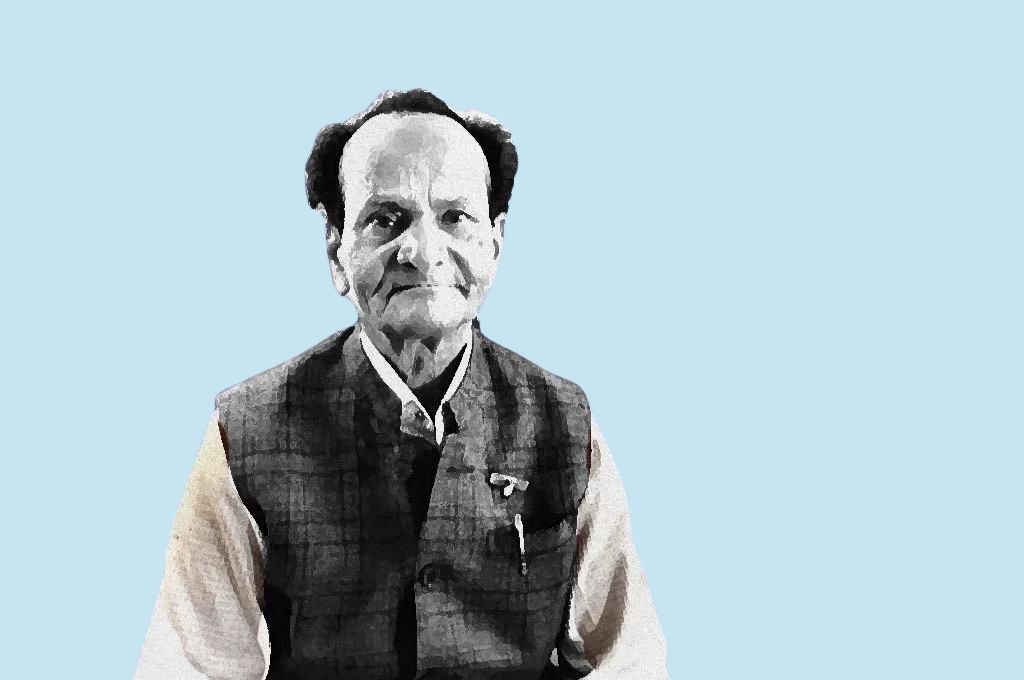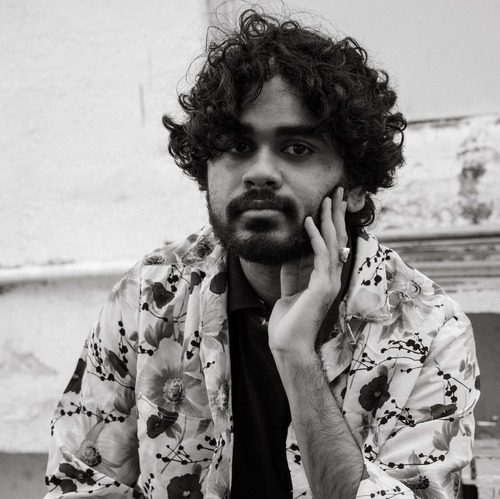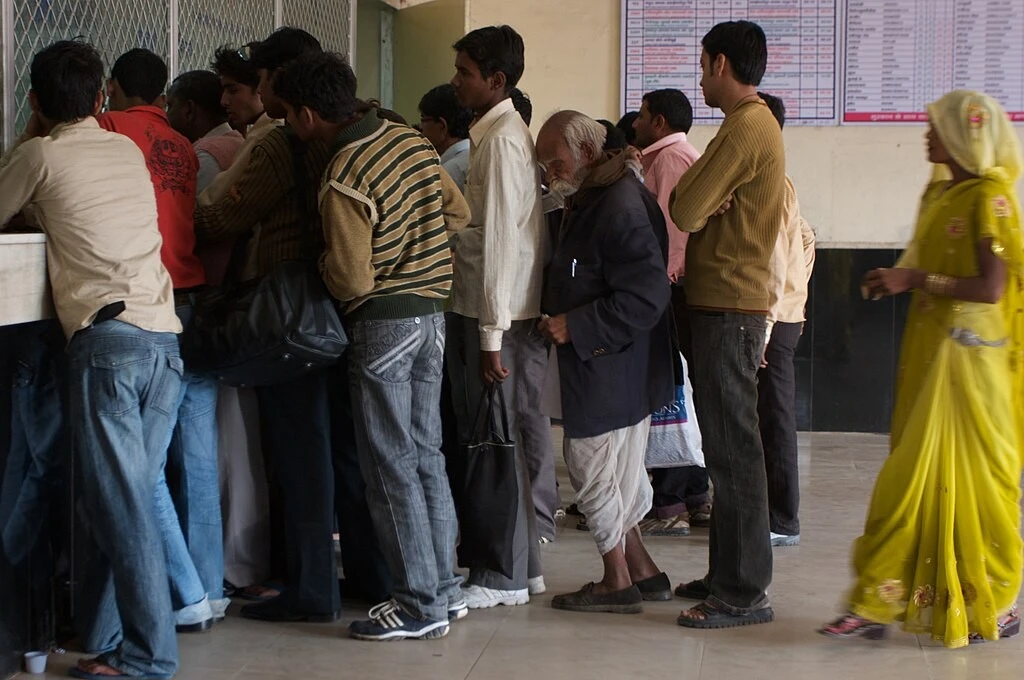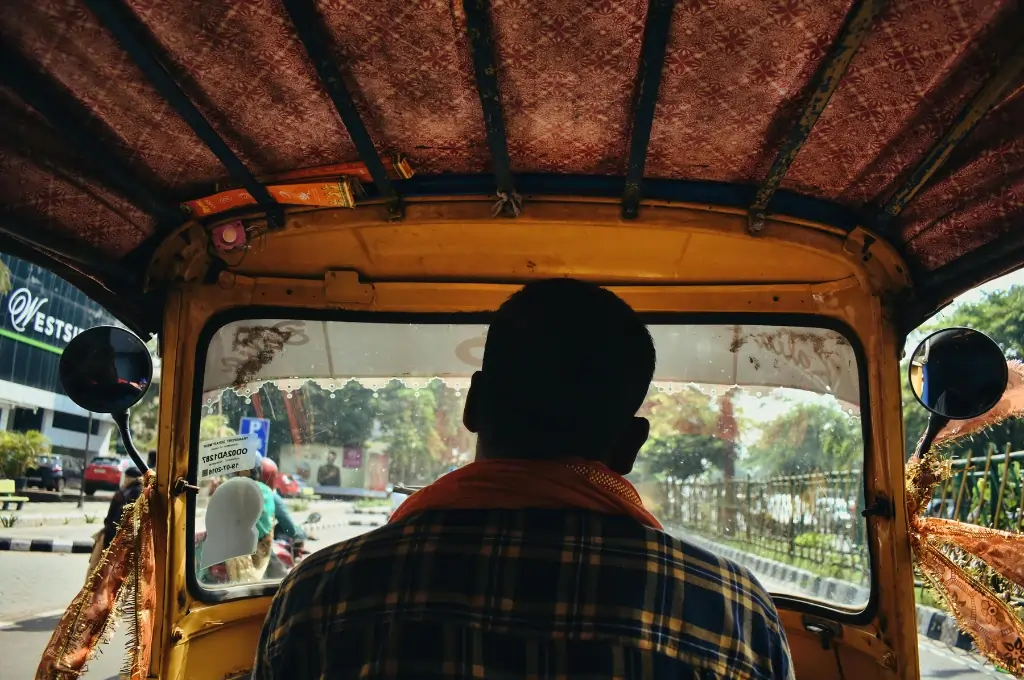Madhu Mansuri Hasmukh is a social activist who was awarded the Padma Shri for his role in securing statehood for Jharkhand. His fondness for folk songs and music began when he was a child, and he used them as a tool to advance the Jharkhand movement.
Over the forty years of his involvement in the movement, he has written many songs—often in the Nagpuri dialect—about the struggles of Jharkhand’s youth and Adivasis. In 2011, he received the Jharkhand Ratna Award.
In this interview with IDR, Madhu Mansuri Hasmukh talks about the role of folk songs in the formulation of his identity, his achievements through his activism, and how his involvement affected his personal life. He also reflects on how Jharkhand’s youth continue to struggle for livelihoods despite the wealth of mineral and natural resources in the state, and highlights that these resources should be utilised to generate employment and protect the youth from extremism.

Your name is quite interesting. Is there a story behind it?
I was born into a Muslim family. My father’s name was Abdul Rahman, and my mother’s name was Mani Parveen. I was just 15 or 16 months old when my mother passed away. I was no longer being breastfed and was growing weaker by the day. One day, I became so sick that everyone assumed that I didn’t have much time left. I was kept in the courtyard of our house and the villagers gathered around me. Shiv Shankar, the village shepherd, was passing through the area. He stopped when he spotted the crowd around my house. The people present told him, “This child is going to die because he’s not getting his mother’s milk.”
Shiv Shankar replied, “You may tie me up to a tree and beat me when you hear what I’m about to say, but that’s okay as long as you listen to me. Let me feed this baby a tiny amount of mahua (the alcoholic nectar of the mahua tree), and he’ll get better.” To his surprise, everyone agreed, and the liquor was given to me. Although I didn’t get better immediately, I woke up four hours later. It felt like a miracle, and that mahua was akin to nectar for me. After this incident, I was often made to drink mahua as medicine. I continued to drink it till the age of eight, thinking of it as nectar. It was so intoxicating that I wouldn’t be able to walk myself back home sometimes.
At the time, people from various communities lived harmoniously in our village. Whoever was around would walk me home, regardless of caste or faith. After bringing me back, they would say to my father, “Yeh baccha toh madhua ho gaya hai.” (This child is drunk.) So, I was given the name Madhu. Although it isn’t an Islamic name, it is what I go by even today.
My father later remarried so that there would be someone to take care of me. I called my new mother mausi maa (aunt mother). She already had a son, which meant that I now had a stepbrother. All of us lived together.
My father used to work in the fields of Kuldeep Sahay, a high school teacher in Ranchi. One day after school, I went to see my father where he worked. I was famished by the time I reached, so I asked my father for the keys to the house with a smile on my face. Mr Sahay witnessed this. He came to us, held my hand, and said to my father, “Abdul Rahman, henceforth, I’m calling your son ‘Hasmukh’.” (Hasmukh means ‘one who is always smiling’.)

My father had tremendous respect for Mr Sahay, so when he was filling out my class 6 school admission documents, he put down my name as Madhu Mansuri Hasmukh.

When and how did you become interested in music?
I have been interested in music since I was a child. I sang on stage for the first time at the age of eight. On August 2, 1956, the Maharaja of the famous village of Ratu was coming to attend an inauguration ceremony. The organiser was looking for folk singers for the programme. I used to sing songs in school; Dil Ahmed, a senior student at my school, knew this. When he found out about the programme, he submitted my name to the organisers and took me to the event. The Maharaja was very pleased with my performance, and he gave me INR 10 as a reward. At the time, INR 10 held a lot of value.
After receiving the money, I thought I should eat something as I hadn’t eaten anything all day. But even though I had all that money, no one was willing to feed me. This was because the tea and pakora were worth only 1 anna (1/16th of a rupee) each. Even if I purchased tea and pakora for myself as well as all of my friends, the hotel didn’t have INR 9 and 12 anna to return, so we returned home hungry.
I gave the INR 10 to my father upon returning home. He asked Dil Ahmed, “What song did my son sing that the Maharaja gave him such a big reward? I work so hard in the heat the entire day, and yet I only earn a rupee for my labour.” I still haven’t forgotten this.
This event marked the beginning of my career. When people heard about the programme where I had performed before the Maharaja, they started inviting me to sing songs. Dil Ahmed used to take me to every event. Sometimes, the events would be so far from home and so many that I wouldn’t return for six or seven days.
Something similar happened on another occasion, when the education minister came to our school and recognised my talent. After the programme, the minister wrote in the school register that as long as I was enrolled in school, I should not be charged any fees. I was very happy about this.
In 1968, my stepbrother landed a government job. By then, I had also passed my class 10 examination with good grades. But after my brother got a job, my mausi maa (stepmother) separated from my father and started living with her son. I was unable to continue my studies after this incident.
How did you get associated with the Jharkhand movement?
When I was a teenager, the Adivasis in Bihar were demanding a separate state of Jharkhand. This movement had been going on for years. Women used to strap their children to their backs and bring them along to protests, and people would raise slogans together—even in the scorching heat. I became part of the movement when I was 12, not as a revolutionary, but because of my songs. At the age of 12, I wrote a song in the Nagpuri dialect keeping the Jharkhand movement in mind. The Jharkhand Party General Secretary Lal Ranvijay Nath Shahdeo took me with him. I gave my first performance of this song at Netaji Subhash Chandra Bose Chowk. Its message was, “For years, we were slaves of the British, and now we are slaves of the officers.” People were very moved by the song, and hence my affiliation with the movement began. I continued to join protests and singing songs which inspired both the youth and Adivasis. I can never forget the day of August 22, 1967. I had gone to Ranchi to participate in one such programme and witnessed a riot. I saw people covered in blood, burning and dying. This incident shook me to my core. When I returned home a few days later, I couldn’t sleep. After dinner one night, I started writing. The impact of the riot was so profound I composed a poem in one night. This poem has been a source of inspiration for my life.
You earned many accolades from the government because of the Jharkhand movement. Could you tell us more about it?
The movement has brought me significant recognition. My music received appreciation, and my folk songs in Nagpuri dialect were recorded as well. As a result, the government announced that they’d reward me with land in Jharkhand’s Simdega district. I spoke to the collector and said that don’t ruin me in people’s eyes by giving me this land. I didn’t take the land. The education minister at the time, Karamchand Bhagat, also announced that the government would grant me land as a token of respect. But I refused.
After joining the Jharkhand movement, I gained considerable name, respect, love, and appreciation from the people.
Long after Jharkhand had become a state, Chief Minister Hemant Soren rewarded me with 4 acres of land. This time I accepted, only because the land was located in the village I grew up in. I also knew Hemant Soren’s father, Shibu Soren, whom I met at a programme related to the movement in Ramgarh.
Shibu Soren was very happy with the songs I sung and said, “Mansur sahib, our arrowhead and your songs will lead to the formation of our state.” This was our first meeting, and we would later encounter each other at several other programmes in Delhi, Kolkata, and other places. In this way, after joining the Jharkhand movement, I gained considerable name, respect, love, and appreciation from the people.
I have sung more than 300 songs, which earned me the Padma Shri award as well.
How did the Jharkhand movement affect your personal life?
I got married in March 1964 and was employed by 1970. When the leaders of the movement learned about my job, they said, “Why are you stuck doing a regular job? You should come with us.” I also wanted to remain involved with the movement. So, I would often go to meetings and protests to sing my songs. But my family were disturbed by my involvement, and it was difficult for me to sustain my job.
I have four sons, all of whom are educated but unemployed. The Bihar government did not give them jobs because of my role in the Jharkhand movement.
I would often be away from home and absent from my job, to the point where I was almost fired. But people started recognising me because of my participation in the Jharkhand movement. Soon I had met with the chief minister and the sports minister, and they sent a letter to the chairman of the organisation where I was employed. The chairman then issued an order in my favour, which stated that if I didn’t come to work because of a programme, then my salary could be docked but I shouldn’t be fired. After this, I would miss 12–14 days of work each month, but this didn’t cause much trouble.
I have four sons, all of whom are educated but unemployed. The Bihar government did not give them jobs because of my role in the Jharkhand movement. Jharkhand has achieved statehood, but there’s no livelihood for them there either.
I sang thousands of songs as part of the movement, through which I tried to unite the youth and the Adivasis. I showed them the right path with my music. I earned the love and respect of the community but amidst it all, my job and my family suffered greatly.
After the success of the Jharkhand movement, do you think the dreams of the youth and the Adivasis, which you also mention in your songs, have been fulfilled?
I always hoped to guide the youth onto the right path through my music. I spoke of the rights of Adivasis in my songs. When the state of Jharkhand was created, we had great aspirations, and these aspirations are also woven into my songs. But today, I feel like the dreams we had were never fulfilled.
Jharkhand is blessed with a wealth of natural resources, but they aren’t being used properly. It is deeply saddening. People don’t have livelihoods, nor a grain to eat. In such a situation, a hungry man would sin, steal, and plunder. Many young people of the state are turning towards extremism. The pen of the educated is moving in the wrong direction. No one tolerates exploitation, the youth are being pushed towards militancy. The minerals and resources are being claimed by entities that are outsiders, not Jharkhandis. But there’s still time for us to course correct.
I have written many songs for the youth; now it’s important for them to become active.
Cloth mills can be opened in the state to generate employment. There’s plenty of bauxite; an aluminium plant can be opened to extract aluminium from bauxite. Sugar mills and paper mills can be set up. Pharmaceutical factories can be opened, given the resources found in the state. People can be employed if all of this is done. They won’t migrate or be radicalised. But this is something that leaders don’t want; they think, “If the people get work, then why would they support us?”
There are many politicians who have gone to jail, and whose names have come up in scams. Common people don’t have enough to fulfil their basic needs. They aren’t getting medicines; they have no resources with which to irrigate their fields, and no jobs; and government schools are non-functional. This is not what we dreamed of at the time of the movement. I have written many songs for the youth; now it’s important for them to become active.
Smarinita Shetty and Srishti Gupta contributed to this article.
—
Know more
- Read this interview with Mazdoor Kisan Shakti Sangathan’s co-founder Shankar Singh on the role of music and theatre in driving social movements.
- Listen to Madhu Mansuri Hasmukh’s Gaon Chodab Nahi, which describes the exploitation of tribal land and forests in the name of development.






